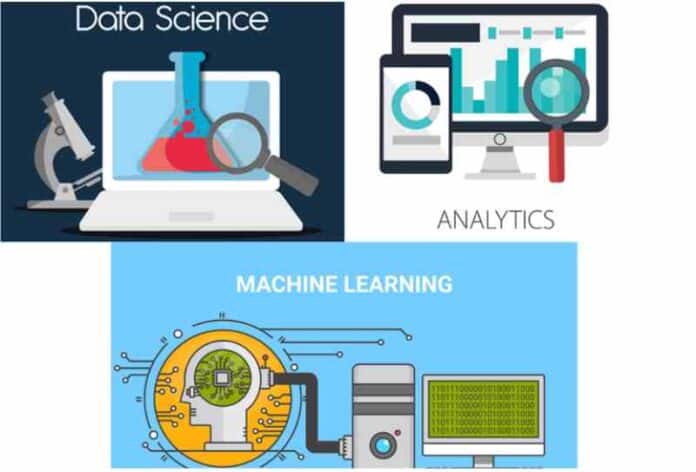Although the debate between data science vs data analytics vs machine learning is causing revolutions across a range of industries, there is still a lot of uncertainty surrounding these three terms. There are many similarities, but they are also very different; they follow different approaches, and their results differ depending on your industry.
The best time to examine and utilize data science and data analytics is now since organizations always look for expert professionals in these fields.
Here’s how you can get started! This guide Analyzes the sensational debate concerning data science, data analytics, machine learning, and artificial intelligence and their differences.
What is Data Science?
Venn diagrams have been defined for over a decade now, and they provide the best answer to that question. Hugh Conway, in 2010, created a Venn diagram based on math, statistics, and subject expertise . If you can do all three, you have a great deal of experience in data science.
A data science approach includes cleansing, preparing, and analyzing big data. A data scientist utilizes machine learning, predictive analytics, and sentiment analysis to extract valuable information from large volumes of collected data. Additionally, they help drive important business decisions by understanding data from a business perspective.
What Is Data Analytics?
Data science and data analytics can be better understood if we define data analytics. Data analytics is an essential component of data science. It is a process in which existing data sets are processed and statistically analyzed. Data analytics aims not to find questions but to find answers and gain insights for problems we already know.
Unlike data science, we have already established questions about which we are to work. The scope of data analytics is much broader and more specialized than data science. Instead, it looks for ways to support the goal, not connections between the data.
In essence, data analytics is analyzing raw data to make conclusions from it. Organizations use analytics to make better and more informed decisions, while scientists use them to verify or debunk theories.
What is Machine Learning?
Data mining uses algorithms to extract, process, and analyze data to forecast future trends. It is known as machine learning. Traditional machine learning software identifies patterns and uncovers hidden insights using statistical and predictive analysis based on observed data.
Using machine learning algorithms, Facebook tracks every user on its social platform. Based on past behaviour, the algorithm, the news feed recommends articles. In similar ways, You can use machine learning to suggest products and movies on Amazon and Netflix based on past purchases.
Comparison of Data Science, Data Analytics, and Machine Learning
- The term data science encompasses a much broader range of topics than data analytics. The field of data science involves mining large data sets, whereas data analytics is much more specific and part of a much larger process.
- Data science aims to find patterns from large datasets and extract insight. As opposed to data science, data analytics generates answers and provides insights into existing questions.
- While data science focuses on asking the right questions, data analysis focuses on finding answers to those questions.
- In contrast to data science, data analysis is concerned with gleaning meaningful insights from the data. Data analysis uses past patterns to predict the future.
- A data scientist estimates the unknown, whereas a data analyst looks at new perspectives on the known.
- A data scientist works on business problems whose solutions will benefit the business, while a data analyst deals with business problems.
- Data analytics aims to find patterns in past data to predict future outcomes. Additionally, AI also requires making assumptions, analyzing data, and predicting beyond what humans can do.
- By giving computers human intelligence, Data Analytics analyzes data to find patterns. Simultaneously, artificial intelligence streamlines the analysis of data.
- More specifically, Machine Learning belongs to the realm of data science.
- Data science has a broader scope than machine learning, making it more relevant. In addition to dealing with algorithms and statistics, it also deals with data processing in its entirety.
- The purpose of analytics is to derive insights from data, while machine learning is the process of teaching machines how to learn from data.
ProIT Academy’s Data Analytics Course In Pune is designed to help students learn all of the capabilities necessary to be a Data Analyst. It includes Python and R programming languages, as well as SQL databases. Course enrollment provides lifetime access to self-paced learning, a chance to work on real-world projects in a well-respected organization, and the opportunity to work on real-world projects.
Read Also: Get proper insight on the CompTIA Security+ course

